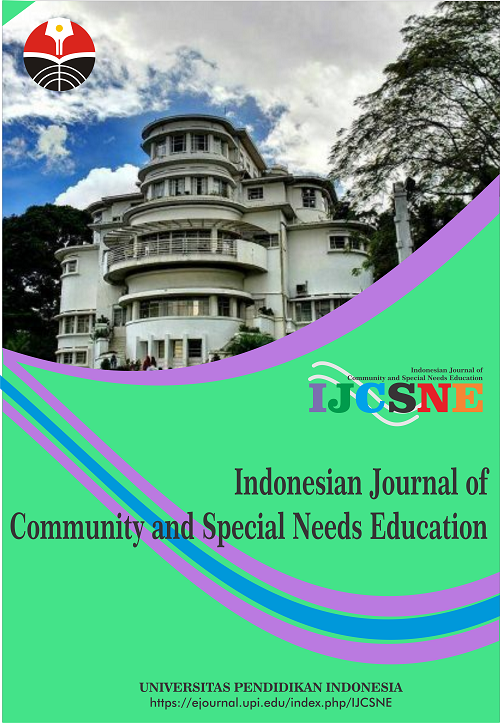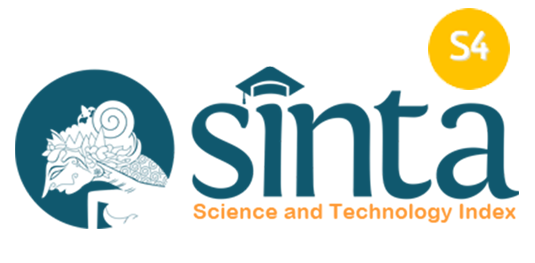Rational Emotive Behaviour Psychotherapy and Depressive Behaviour Among Secondary School Adolescents
Abstract
Keywords
Full Text:
PDFReferences
Ahmed, A., and Raju, M. V. R. (2009). Mental health problems of adolescents: Case studies of students in Adis Ababa city., Ethiopia. Journal of American Academy of Child and Adolescent Psychology, 33(7), 628-637.
Alice, K. J. M., Isaac, S. B., and Abigail, D. (2019). Relationship between depressive behaviour and academic performance of secondary school students in violent areas of Maiduguri Metropolis, Borno State, Nigeria. The Nigerian Educational Psychologist, 17, 10-19.
Beck, A. T., Steer, R. A., and Garbin, M. G. (2018). Psychometric properties of the beck depressive behaviour inventory: Twenty-five years of evaluation. Clinical Psychology Review, 8, 77-100.
Bridges, Y., and Harish C. G. (2010). Role of irrational beliefs in depressive behaviour and anxiety: A Review. Health, 2(8), 862-877.
David, D. (2008). Rational emotive behaviour psychotherapy, cognitive therapy, and medication in the treatment of major depressive disorder: A randomized clinical trial, post-treatment outcomes, and six-month follow-up. Journal of Clinical Psychology, 64(6), 46-728.
Egbochuku, E. O., Obodo, B., and Obadan, N. O. (2008). Efficacy of rational-emotive behaviour therapy on the reduction of test anxiety among adolescents in secondary schools. European Journal of Social Sciences, 6, 152-164.
Ellis, A. (2015). Differentiating inappropriate from appropriate feelings in RET. British Journal of Cognitive Psychotherapy, 3, 90–92.
Ferrari, A. J., Somerville, A. J., Baxter, A. J., Norman, R., Patten, S. B., and Vos, T. (2013). Global variation in the prevalence and incidence of major depressive disorder: A systematic review of the epidemiological literature. Psychological Medicine, 43, 471-81.
Gonzalez, J. E., Nelson, R. J., Gulkin, T. B., Saunders, A., Galloway, A. and Shwery, C. S. (2004). Rational Emotive Therapy with children and adolescents. Journal of Emotional and Behavioural Disorders, 12(4), 222-235.
Kumar, V. (2009). Impact of rational-emotive behviour therapy (REBP) on adolescents with conduct disorder (CD). Journal of the Indian Academy of Applied Psychology, 35, 10-111.
Monroe, S., M. and Harkness, L., K. (2015). Life stress, the “kindling” hypothesis and the reoccurrence of depressive behaviour: Consideration from a life, stress perspective. Psychological Review, 112, 417-445.
Moussavi, S., Chatterji, S., Verdes, E., Tandon, A., Patel, V., and Ustun, B. (2007). Depressive behaviour, chronic diseases, and decrements in health: Results from the World Health Surveys. The Lancet, 370, 851-858.
Najafi, T., Jamaluddin, S., and Lea-Baranovich, D. (2012). Effectiveness of group REBP in reducing irrational beliefs in two groups of iranian female adolescents living in Kuala Lumpur. Interdisciplinary Journal of Contemporary Research in Business, 3(12), 312-322.
Patterson, T. L., Semple, S. J., Temoshok, L. R., Atkinson, J. H., McCutchan, J. A., Straits-Tröster, K., Chandler, J. L., Grant, I. (1995). Stress and depressive symptoms prospectively predict immune change among HIV seropositive men. Psychiatry, 58, 299-312.
Rahman, A., and Melhim, A. (2009). Attitudes of Jordanian college students towards learning English as a foreign language. College Students Journal, 43(2), 683.
Rapheal, J., and Paul, V. K. (2014). Environmental correlation of adolescent stress: A path analysis. International Journal of Education and Psychological Research, 3(4), 14-17.
Sava, F., Yates, B., Lupu, V., Szentagotai, A., and David, D. (2009). Cost-effectiveness and cost-utility of cognitive therapy, rational-emotive-behaviour therapy, and fluoxetine (Prozac) in treating depressive behaviour: A randomized clinical trial. Journal of Clinical Psychology, 65(1), 36-52.
Vekateshkumar, R., Mahigir, N., and Karimi, Q. (2012). Rational-emotive behaviour therapy on pain among cancer patients. Indian Streams Research Journal, 2(2), 1-4.
Zhaleh, N., Zarbakhsh, M., and Faramarzi, M. (2014). Effectiveness of rational-emotive behaviour therapy on the level of depressive behaviour among female adolescents. Journal of Applied Environmental and Biological Sciences, 4(4), 102-107.
DOI: https://doi.org/10.17509/ijcsne.v3i1.51645
Refbacks
- There are currently no refbacks.
Copyright (c) 2022 Universitas Pendidikan Indonesia

This work is licensed under a Creative Commons Attribution-ShareAlike 4.0 International License.















